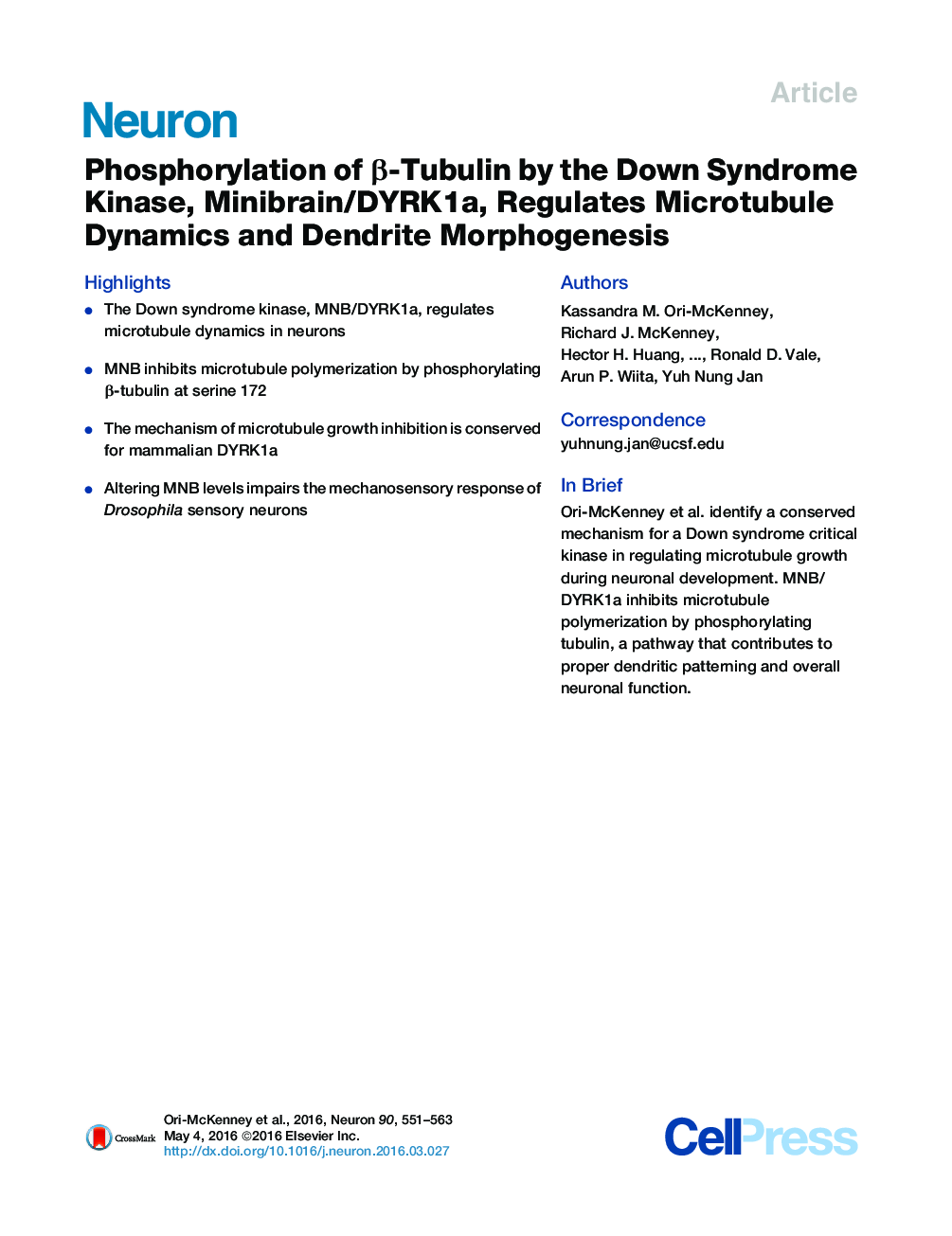| Article ID | Journal | Published Year | Pages | File Type |
|---|---|---|---|---|
| 4320708 | Neuron | 2016 | 13 Pages |
•The Down syndrome kinase, MNB/DYRK1a, regulates microtubule dynamics in neurons•MNB inhibits microtubule polymerization by phosphorylating β-tubulin at serine 172•The mechanism of microtubule growth inhibition is conserved for mammalian DYRK1a•Altering MNB levels impairs the mechanosensory response of Drosophila sensory neurons
SummaryDendritic arborization patterns are consistent anatomical correlates of genetic disorders such as Down syndrome (DS) and autism spectrum disorders (ASDs). In a screen for abnormal dendrite development, we identified Minibrain (MNB)/DYRK1a, a kinase implicated in DS and ASDs, as a regulator of the microtubule cytoskeleton. We show that MNB is necessary to establish the length and cytoskeletal composition of terminal dendrites by controlling microtubule growth. Altering MNB levels disrupts dendrite morphology and perturbs neuronal electrophysiological activity, resulting in larval mechanosensation defects. Using in vivo and in vitro approaches, we uncover a molecular pathway whereby direct phosphorylation of β-tubulin by MNB inhibits tubulin polymerization, a function that is conserved for mammalian DYRK1a. Our results demonstrate that phosphoregulation of microtubule dynamics by MNB/DYRK1a is critical for dendritic patterning and neuronal function, revealing a previously unidentified mode of posttranslational microtubule regulation in neurons and uncovering a conserved pathway for a DS- and ASD-associated kinase.
